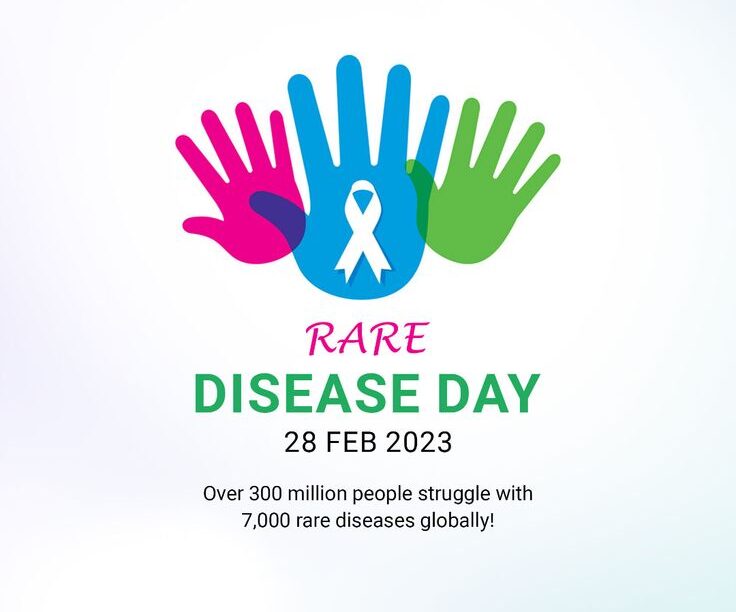Rare Disease Day 2025: Raising Awareness for the Undiagnosed and the Rare
Rare Disease Day 2025: On February 28th, 2025, people worldwide will come together to observe Rare Disease Day, a day dedicated to raising awareness about rare diseases and supporting those who suffer from them. Rare diseases, although affecting a small percentage of the population, can have profound impacts on individuals and their families. This observance aims to amplify the voices of those affected, raise public awareness, and support research for better diagnosis, treatment, and care. Let’s explore what Rare Disease Day is all about, why it matters, and how it impacts society in meaningful ways.
History of Rare Disease Day 2025
The idea of Rare Disease Day originated in 2008 by the European Organisation for Rare Diseases (EURORDIS), in collaboration with patient organizations and medical professionals. The goal was simple: to create a single day for people across the globe to come together and raise awareness for rare diseases, which are often overlooked or misunderstood by the general public and even some healthcare professionals.
Since then, the observance has grown exponentially, with participation from various countries, governments, advocacy groups, healthcare providers, and individuals. It is observed on the last day of February, as this is typically the rarest day of the year, symbolizing the rarity of the diseases it represents.
What Are Rare Disease Day 2025?
A rare disease is defined as one that affects a small percentage of the population, typically fewer than 1 in 2,000 people. There are over 7,000 known rare diseases worldwide, and many of them are genetic in nature. Rare diseases can be chronic, severe, and life-threatening. These conditions may not only be difficult to diagnose due to their rarity, but they can also lack adequate research funding and treatment options.
Examples of rare diseases include Huntington’s disease, Amyotrophic Lateral Sclerosis (ALS), Cystic Fibrosis, Duchenne muscular dystrophy, and Ehlers-Danlos syndrome. Some rare diseases, like sickle cell anemia, though more widely recognized, still pose significant challenges in treatment and care.
Facts About Rare Disease Day 2025
- Date of Observance: Rare Disease Day is observed annually on February 28th, with February 29th being used in leap years.
- Global Participation: Rare Disease Day is celebrated in over 90 countries worldwide, including India, the United States, European Union countries, and Australia.
- Theme of the Year: Each year, Rare Disease Day has a theme that emphasizes an issue within the rare disease community. In 2025, the theme will focus on “Building the Future with Care and Hope”, highlighting the importance of patient care and ongoing research.
- Advocacy and Awareness: The day brings together patients, families, advocacy organizations, and medical professionals to foster dialogue, share experiences, and push for improvements in the healthcare systems for those affected by rare diseases.
- Rare Disease Day Activities: Events range from informational webinars and social media campaigns to fundraising events, conferences, and awareness walks.
Why Rare Disease Day 2025 Matters
The significance of Rare Disease Day cannot be overstated. It plays a crucial role in not only raising awareness but also driving meaningful change for the rare disease community. Here’s why it matters:
- Increasing Awareness: Many rare diseases are not well-known, leading to a lack of understanding, funding, and research. By observing Rare Disease Day, we shed light on these conditions, helping society understand the challenges faced by those living with rare diseases. Awareness leads to empathy, which is critical for creating a supportive environment for patients and their families.
- Encouraging Research and Innovation: Research into rare diseases often receives far less attention and funding compared to more common illnesses. Rare Disease Day encourages governments, healthcare institutions, and the private sector to invest in research, clinical trials, and innovative therapies that can improve the quality of life for patients. The greater the awareness, the higher the chance of breakthroughs in rare disease treatments.
- Building Solidarity: Rare Disease Day is a time for families, caregivers, patients, and medical professionals to come together in solidarity. It fosters a sense of unity among individuals and organizations across the globe who may feel isolated in their experience with rare diseases. The day serves as a reminder that they are not alone in their struggles and that their voices matter.
- Promoting Policy Change: Observing Rare Disease Day creates an opportunity to advocate for stronger policies in healthcare that address the needs of individuals with rare diseases. This includes pushing for greater access to healthcare services, affordable treatments, and long-term care support. Many countries are slowly recognizing the importance of including rare diseases in their public health agendas.
- Highlighting Patient Stories: Rare Disease Day is a platform for patients to share their stories, putting a human face on rare diseases. These personal accounts often have a profound impact, making it easier for the general public to understand the challenges faced by individuals and families dealing with rare conditions.
Key Observances and Celebrations: Rare Disease Day 2025
- Social Media Campaigns: On Rare Disease Day, various advocacy groups and individuals take to social media to share stories, facts, and messages of support. Hashtags like #RareDiseaseDay and #RareDiseases help spread the word globally and connect people to the cause.
- Educational Events: Many universities and medical centers host lectures, workshops, and conferences to educate the public about rare diseases, their symptoms, and their treatments. Healthcare professionals discuss the latest advancements in rare disease research and care.
- Fundraising and Charity Events: Since rare diseases often lack funding for research, many organizations organize fundraising events such as galas, auctions, and charity runs. The funds raised go towards supporting research, improving access to treatments, and providing care for affected individuals.
- Awareness Walks and Rallies: In various cities across the world, awareness walks and rallies are held, where participants wear the colors of the rare disease community, often purple or teal, and show their support for those affected by rare diseases. These events often bring together individuals from diverse backgrounds who share a common cause.
Frequently Asked Questions (FAQs) Rare Disease Day 2025
- Why Is Rare Disease Day Important?
- Rare Disease Day raises awareness about the challenges faced by individuals with rare diseases and encourages research into rare conditions. It fosters solidarity and brings attention to underrepresented health issues.
- What Are Some Examples of Rare Diseases?
- Rare diseases include Huntington’s disease, Cystic fibrosis, Muscular dystrophy, ALS, and Ehlers-Danlos syndrome, among many others.
- How Can I Participate in Rare Disease Day?
- You can participate by spreading awareness on social media, attending events, donating to rare disease research organizations, or supporting fundraising initiatives.
- What Is the Theme for Rare Disease Day 2025?
- The theme for Rare Disease Day 2025 is “Building the Future with Care and Hope,” focusing on patient care and the hope for future advancements in treatment and research.
- How Can Rare Disease Day Help Patients?
- Rare Disease Day brings attention to rare diseases, fosters patient support, encourages research funding, and promotes policy changes that benefit those affected by rare diseases.
Conclusion: A Day of Hope and Advocacy: Rare Disease Day 2025
Rare Disease Day 2025: Rare Disease Day is a powerful observance that helps create a more inclusive and informed society. By recognizing the significance of rare diseases and advocating for better care and research, we can give individuals affected by these conditions a fighting chance. This day is not just about awareness but about building hope, community, and solutions. Let’s stand together to support the rare disease community and make Rare Disease Day 2025 a turning point in the fight for better care and treatment.










